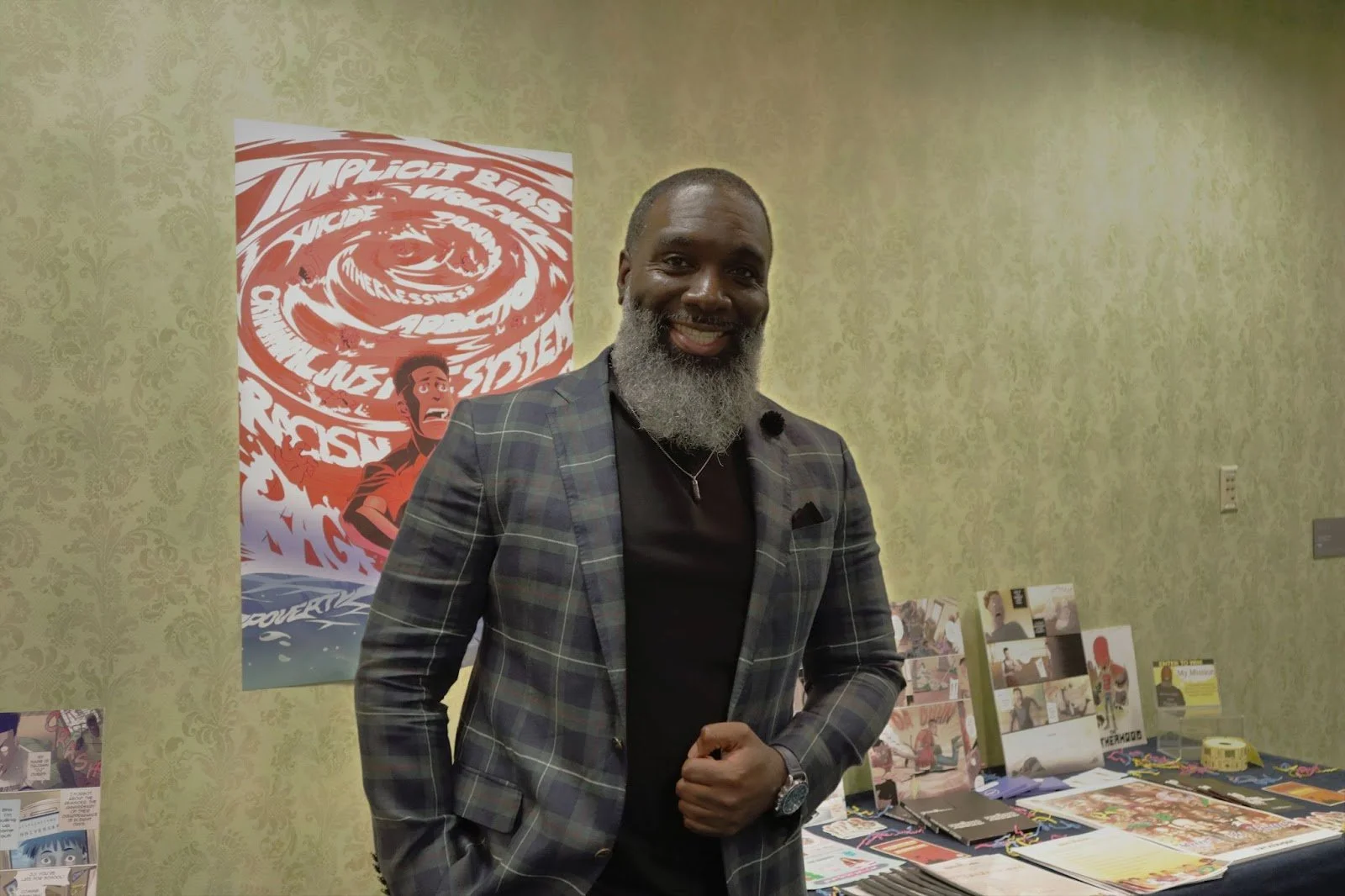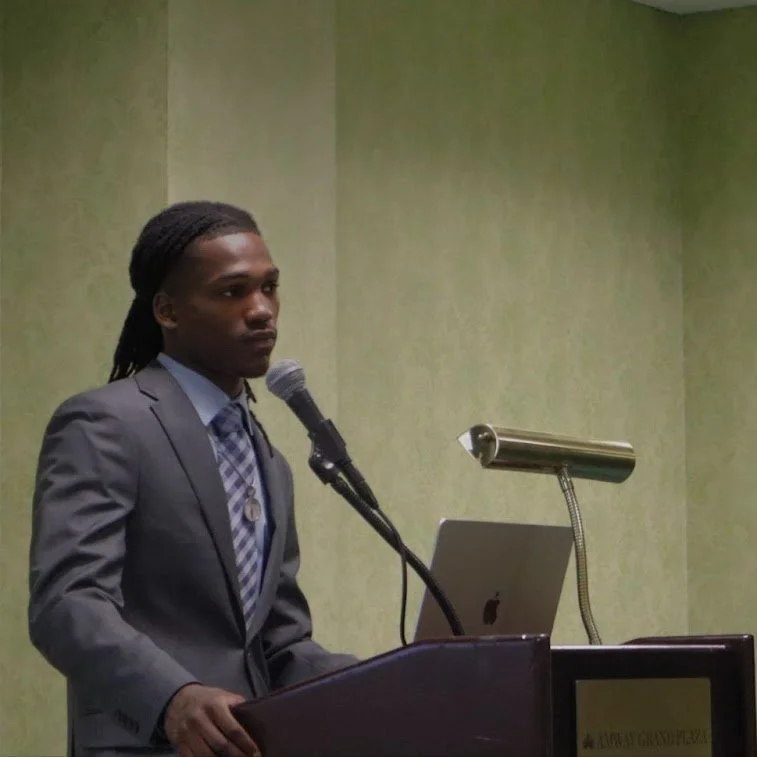Why does society adultify Black boys?
Written by Bryson Adkins
Last month, I saw Cole Williams, Delta Project Executive Director, and Bilal Al-Raed, a fellow intern at The Delta Project, lead a moving, impactful conversation about the adultification of Black boys. They presented at the Grand Valley State University Black Boys & Men National Symposium, an annual event that shines a light on systemic issues black boys and men face in our communities.
Cole Williams after sharing his story and his mission at the symposium
“The GVSU Black Boys and Men National Symposium was an amazing opportunity for The Delta Project to connect with educational partners from across the state of Michigan to discuss and collaborate on issues that impact the health and wellness of Black and Brown boys and men.”
Cole’s presentation included an astonishing slide that showed pictures of young black men with a cold, gray backdrop behind them.
As he shared the images, he simply asked the audience, “What do you see?"
I heard many people say that these boys were lost, scared or victims.
As I sat watching, I really didn’t know what to think.
After an uncomfortable pause, Cole pointed out that the photos were school IDs.
Many of the professionals in the room assumed these were mugshots. Why did people so easily assume that these young men were lost, scared, victims…or worse, criminals?
These prevailing harmful misconceptions affect black boys and men throughout our lives, and they cause our communities to suffer. So how do we combat the preconceived assumptions made about black males in our community?
What I witnessed in this presentation was an action step towards change. Seeing this issue confronted though such a stark example was incredibly moving for me.
Bilal sharing his story at the symposium
According to Bilal, the spark of change was present in the room because of the topics that were touched on. “It’s not often that people see a young black man opening up about their experiences in the juvenile justice system, and how they might be treated by society,” said Bilal.
Cole’s workbooks, comic books and resources at the symposium
Cole William’s comic book series, The Fatherhood, and his workbook, Radical Feelings, were also on display at the event.
These vibrant works of art create a more open space to discuss the emotions and feelings Black boys and men are experiencing.
What stood out to me was the high emotional intelligence of Cole’s content.
Creating workshops geared toward enriching self-awareness and growth; building spaces to ask our youth how they are actually doing. And thus, going deeper than the surface level “I’m fine” or “I’m a’ight.”
Processing emotions is an important process for any human. Providing space not only to talk about emotions and how we feel but to build self-awareness through meaningful interpersonal communication.
This is the type of work that will create change.
“Believe in our Black men. Don’t leave your Black boys, don’t abandon your young Black boys to the negative forces meant to harm them. Instead, create harmony; lead with love that breathes new life and opportunity. Give our Black boys and men safe spaces in our community. Tell your Black men and boys that they are beautiful.”




